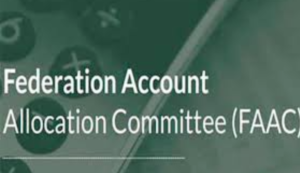See the list of 21 States that Seek N1.65 Trillion in Loans Despite 40% Rise in FAAC Allocations
See the list of 21 States that Seek N1.65 Trillion in Loans Despite 40% Rise in FAAC Allocations

Despite a 40% increase in allocations from the Federation Account Allocation Committee (FAAC) over the past year, 21 Nigerian states are seeking loans totaling N1.65 trillion to address their budget shortfalls for 2024.
From June 2023 to June 2024, all 36 states and 774 local governments collectively received N7.6 trillion from FAAC. This boost in revenue is attributed primarily to the federal government’s removal of the petrol subsidy on May 29, 2023.
The states are expected to receive N5.54 trillion from FAAC this year, up from N3.3 trillion last year. Under the current revenue-sharing formula, the federal government receives 52.68% of the revenue, while states and local governments receive 26.72% and 20.60%, respectively. These allocations, alongside each tier’s internal revenue, are meant to support development and financial obligations at all levels of government.
In June 2023, state governments received N299.92 billion, while local governments received N221.79 billion. Subsequent months saw increases, with states receiving as much as N461.979 billion and local governments N337.019 billion in June 2024. Over the year, the FAAC allocations to states and local governments totaled N7.6 trillion, a 40% rise from the previous year. Additionally, allocations from Value Added Tax (VAT) surged by 228.8% to N2.42 trillion, and the 13% derivation fund for oil-producing states increased by 234% to N519.83 billion.
Notably, in June alone, the FAAC allocation exceeded N1 trillion. According to World Health Organization standards, 20% of this allocation (N160 billion) would be sufficient to establish 320 primary healthcare centers nationwide.
Experts are calling for increased accountability in the management of these funds. Umar Yakubu, Executive Director of the Centre for Fiscal Transparency and Public Integrity, highlighted concerns about weak accountability mechanisms and inefficient audit processes. He noted that despite increased revenues, there is a lack of significant improvements in public services and infrastructure, with funds often being mismanaged.
Development expert Victor Agi echoed these concerns, emphasizing the need for state governments to utilize the increased revenue effectively for grassroots development. He pointed out that despite a substantial rise in revenues, many governors are struggling to meet wage and welfare commitments, indicating deeper systemic issues.
Both experts stress the importance of enhanced transparency and accountability to ensure that increased revenues translate into tangible benefits for the populace.
TRENDING SONGS
 Shock in Anambra: Bride Disappears Moments Before Wedding
Shock in Anambra: Bride Disappears Moments Before Wedding
 Nigerian Woman Returns ₦330 Million Accidentally Credited to Her Account
Nigerian Woman Returns ₦330 Million Accidentally Credited to Her Account
 APC Don Reach Morocco?’ VeryDarkMan Reacts to Seyi Tinubu Poster
APC Don Reach Morocco?’ VeryDarkMan Reacts to Seyi Tinubu Poster
 Bride Breaks Down in Tears as Wedding Meals Were Kept Secretly While Guests Go Home Hungry
Bride Breaks Down in Tears as Wedding Meals Were Kept Secretly While Guests Go Home Hungry
 Odogwu by Day, Robber by Night: How Marriage Joy Turned Into Tragedy
Odogwu by Day, Robber by Night: How Marriage Joy Turned Into Tragedy
 Nigerian Officials Allegedly Pocket N4–6B Weekly Through Smuggling Cartels at Seme–Badagry Border
Nigerian Officials Allegedly Pocket N4–6B Weekly Through Smuggling Cartels at Seme–Badagry Border
 Ahmad Yerima: Naval Officer to Face No Sanctions After Clash with Wike – Matawalle
Ahmad Yerima: Naval Officer to Face No Sanctions After Clash with Wike – Matawalle
 Trending Video: Muslim Man Joins Wife in Hallelujah Challenge ‘Dress Like Your Miracle’ Night
Trending Video: Muslim Man Joins Wife in Hallelujah Challenge ‘Dress Like Your Miracle’ Night
 Woman Seeks Advice as Late Brother’s Wife Refuses to Mourn Him Following His Death With Alleged Mistress
Woman Seeks Advice as Late Brother’s Wife Refuses to Mourn Him Following His Death With Alleged Mistress
 Nobody Cares About Fine Girls In The UK, I Miss Nigeria — Nigerian Lady Laments
Nobody Cares About Fine Girls In The UK, I Miss Nigeria — Nigerian Lady Laments
Share this post with your friends on ![]()













